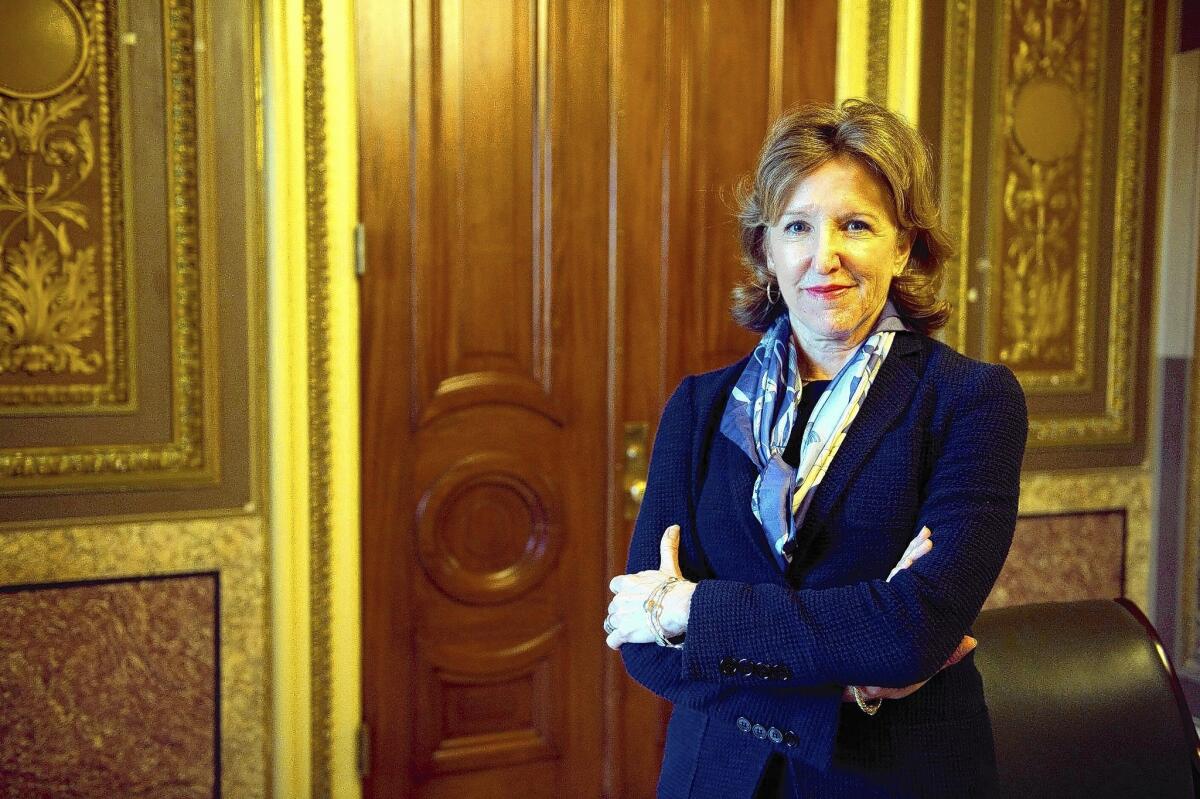Advocates for adopted children decry ‘private re-homing’

- Share via
WASHINGTON — Child-care advocates asked Congress on Tuesday to do more to protect adopted children — often foreign-born and suffering from behavioral problems — who are being given away to people solicited over the Internet by adoptive parents who no longer want them.
The Senate Subcommittee on Children and Families hearing was the first time the chamber has examined the issue of “private re-homing,” and several lawmakers said they were disturbed by the practice.
Sen. Kay Hagan (D-N.C.), the subcommittee chairwoman, said children were being “shuffled around to homes and families that their adoptive parents have never met and who, in some cases, have a history of child abuse and neglect.”
“We cannot allow these children to slip through our system unnoticed,” she added.
Experts urged Congress to restrict online advertisements for the practice and to require that all child custody transfers to nonrelatives be supervised by a court. They also called for additional support for struggling adoptive parents and tighter government scrutiny of prospective adoptive parents.
“I don’t know what the mind-set was of these folks making these poor decisions,” said JooYeun Chang, associate commissioner for the U.S. Department of Health and Human Services Children’s Bureau. “Obviously when they adopted a child they did not take that responsibility of becoming a parent in a way that was intended.”
“It’s important for laws to be clear.... I think the fact that parents, whether they’re [adoptive] or not, aren’t clear that this is not appropriate behavior says we need to talk about this as a society,” she said.
Chang said her department was providing technical assistance and guidance to states, but was still in the process of evaluating how to respond to private re-homings.
The issue received widespread attention in September after a series of articles by Reuters journalist Megan Twohey, who found that parents were using online bulletins on Yahoo and Facebook to advertise their unwanted adopted children. She estimated that 70% of the children offered on the online forums she reviewed had been born in other countries and adopted by families in the U.S.
In many cases, parents said they turned to private re-homing because they were unable to handle their adopted child’s emotional or behavioral problems, and received little support from adoption agencies.
The process of re-homing is cheaper and less time-consuming than formal adoptions, which require background checks, home inspections and training. Often the transfers are completed with nothing more than a notarized power of attorney.
But since there are no uniform regulations for private re-homing, children risk being transferred to abusive families, Twohey warned. In her reporting, she found one instance of a man — now in prison for child pornography — who took home a 10-year-old boy whose adoptive parent had used an online site to transfer custody.
“What we didn’t know was how often this was happening and what had become of the children who were given away,” Twohey said at the hearing. “No authority systematically tracks what happens to children after they are adopted domestically or internationally.”
The scope of the problem is unclear. After monitoring messages from an online site over a period of five years, Twohey estimated that a child was offered to strangers an average of once a week.
State laws largely determine how adoption transfers take place. In response to the Reuters investigation, four states — Wisconsin, Louisiana, Colorado and Florida — increased restrictions on advertising and transferring custody of children.
Panelists also asked Tuesday for federal assistance to address the larger issue of child trafficking in the U.S., which is estimated to victimize more than 100,000 children with an average age of 11 to 14 each year.
While the victims of child trafficking come from diverse backgrounds, a disproportionate number have been sexually abused, lack stable housing, have abused drugs or alcohol, and have lived in foster care.
Abigail English, director of the Center for Adolescent Health & the Law in Chapel Hill, N.C., recommended that the federal government assist in evaluating whether strategies to prevent trafficking were working and in providing training for people employed in health and education.
More to Read
Sign up for Essential California
The most important California stories and recommendations in your inbox every morning.
You may occasionally receive promotional content from the Los Angeles Times.













